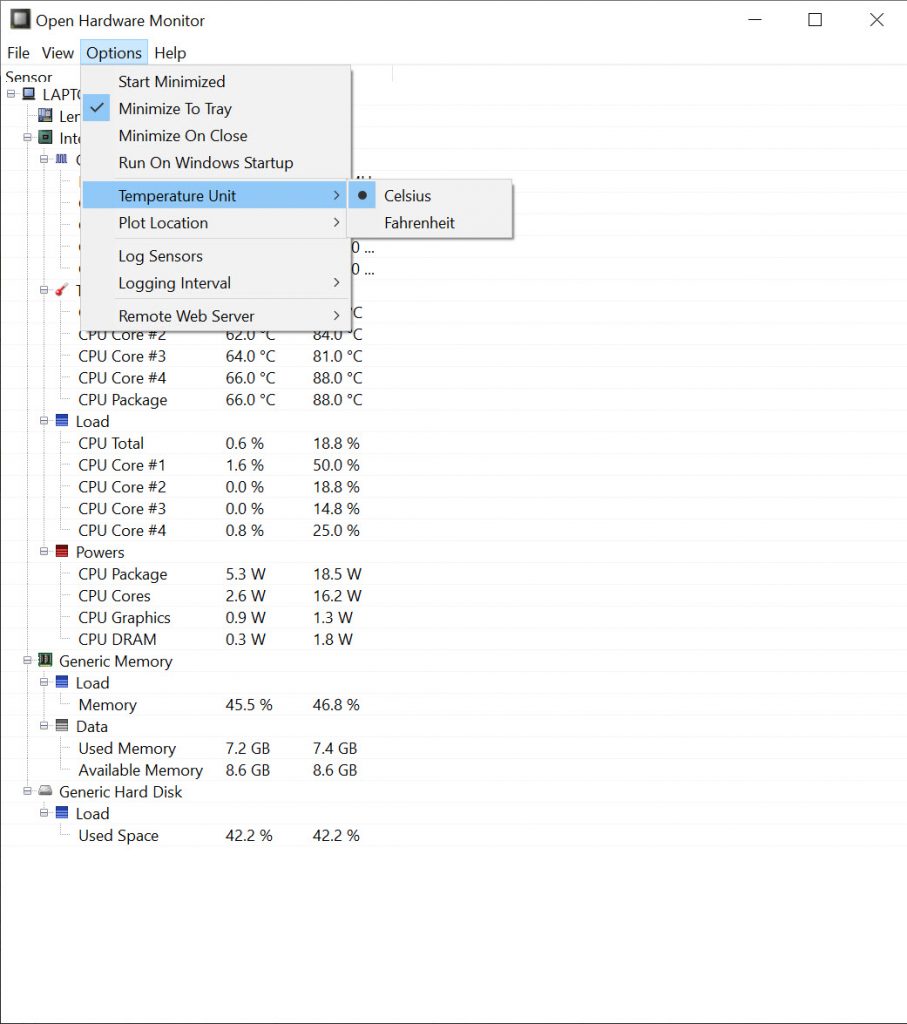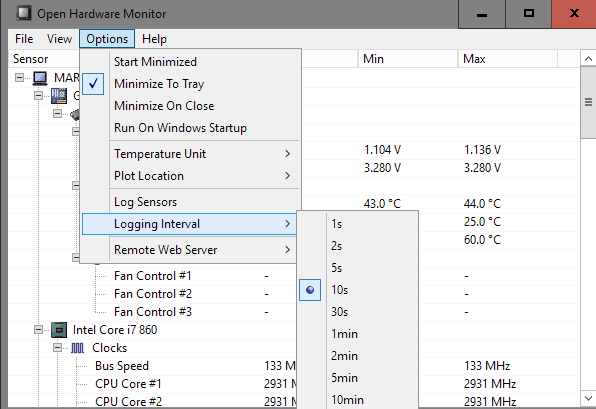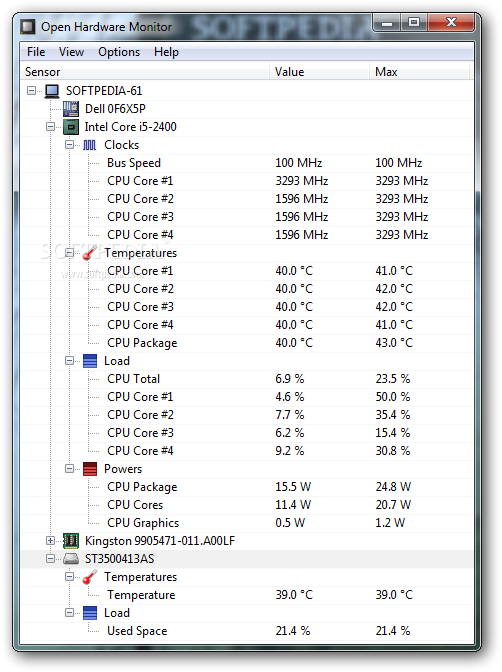
- Hardware monitor software#
- Hardware monitor professional#
- Hardware monitor free#
- Hardware monitor windows#
New "max" sensors for CPU VID, CPU core temperatures and CPU core powers.Improved sensors organization in tree display.Gigabyte AORUS 1200W Platinium PSU monitoring.Special hardware monitors such as abit® uGuru and Gigabyte® ODIN™ power supplies serie are supported too. In addition, it can read modern CPUs on-die core thermal sensors, as well has hard drives temperature via S.M.A.R.T, and video card GPU temperature.
Hardware monitor free#
If you're looking for a free way to monitor all of the attributes for your computer's attached hardware, Open Hardware Monitor provides an extremely useful analytical tool that can be used to quickly diagnose existing problems and help you maintain optimal performance.The program handles the most common sensor chips, like ITE IT87 series, most Winbond ICs, and others. Although SpeedFan is slightly more popular than Open Hardware Monitor, both of these applications contain highly similar feature sets and you should test both to see which ones better fits your needs. Of these alternatives, Speed Fan is the most popular, with HWMonitor being the second most commonly used alternative.
Hardware monitor software#
Software that is similar to Open Hardware Monitor includes SpeedFan, HWMonitor, Core Temp, AIDA64 Extreme Edition, Real Temp, and Fan Control.
Hardware monitor professional#
Thus, you may need the assistance of a computer professional to effectively analyze the results of the reports generated by the software.īeing that this is a beta release, there may be a few minor bugs that need to be worked out, although I have not encountered any during testing. It can be difficult for the average computer user to figure out what the various statistics mean. Provides CPU Vcore and Battery voltage valuesĭisplays both system and CPU temperatures, in both Celsius or Fahrenheit, as well as the fan speeds of the upper front, lower front, power supply, and upper back fans Provides continuous S.M.A.R.T (Self-Monitoring, Analysis, and Reporting Technology) feedback for almost all computer hard drives


Monitors and displays ATI and Nvidia video card sensors Monitors and displays the CPU temperature of Intel and AMD processors Gives you the ability to display monitored values in three different ways – within the main interface window, a personalized desktop gadget that can be adjusted to your preferences, and within the system tray.

For a more expeditious and continuous monitoring of attributes you can utilize the customizable desktop gadget option, or set the software to provide input via the system tray.Ĭompatible with the majority of monitoring chips found in modern main boards, including those made by Winbond, ITE, and Fintek.

You can click on a device to expand its report and view the current value, as well as the minimum and maximum values. All of the computer attributes are displayed in a neatly organized list that categorizes statistics based on the operating system and the name of the monitor device. The user interface itself is relatively simple, with only four menus located at the top of the main window (File, View, Options, and Help).
Hardware monitor windows#
In this review we'll focus on the Windows version. It is capable of running on both 32-bit and 64-bit versions of Windows, and it is also compatible with all x86-based Linux operating systems. It is compatible with Windows XP, Vista, 7, 8, 8.1, and 10. This software is compatible with the majority of hardware monitoring chips found in modern main boards.Īt a strikingly small file size of only about 250 kB, Open Hardware Monitor typically downloads and installs in under 2 to 3 minutes. Open Hardware Monitor is a free open-source utility that is designed to provide a centralized interface in which you can easily monitor various aspects of hardware performance, including fan speeds, temperature sensors, voltage usage, resource load, and processor clock speeds.


 0 kommentar(er)
0 kommentar(er)
